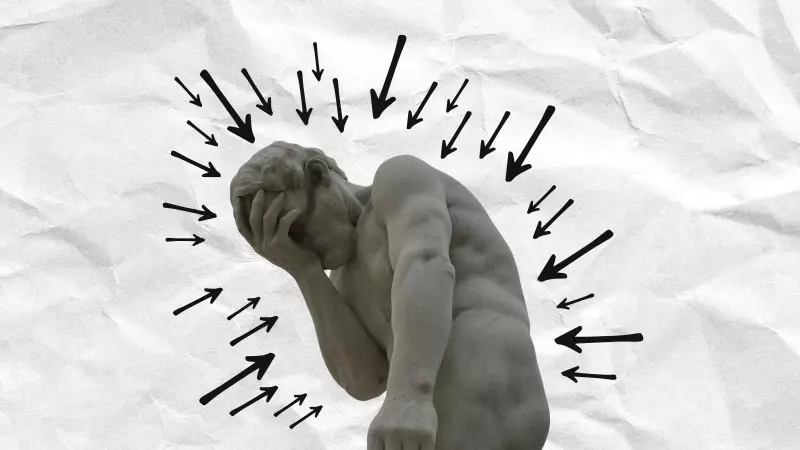
The Phone Pouch That Sparked a Revelation
When volunteers at Samay Raina's comedy show sealed my mobile phone into a small black pouch, an unexpected wave of resentment washed over me. I immediately complained to my friends about this restriction - the first comedic irony of the evening. Here was a room full of people prohibited from documenting the very enjoyment they were about to experience.
But that initial anger left me exhausted and contemplative. Why did I feel such anxiety about being unable to use my phone when it was right there in my hand? The uncomfortable truth emerged as I sat through the performance: my back ached from cramped seating, the air felt thick and suffocating, and the comedy itself was only intermittently amusing. Yet despite my physical discomfort and the inability to post, my mind continued generating captions for photos I had anticipated taking.
That moment became my wake-up call - the realization that this constant need to be 'on', this fear of experiencing uncaptured moments, proved how deeply performance culture had infiltrated our lives.
The Invisible Audience in Our Pockets
As a millennial who grew up alongside social media's rise, I recognized that nearly every action now comes with an invisible audience. Even in solitude, I find myself thinking in captions. The performance begins before the moment happens - planning outfits to avoid repetition, scouting cafe corners with optimal lighting, and imagining how experiences will appear on my feed.
I'm clearly not alone in this behavior. Scroll through any social media feed and you'll witness people performing reading (#CurrentlyReading), feminism (unlearning), romance (#CoupleGoals), and even leisure (slow-mornings). We inhabit a world where doing things isn't sufficient - you must be seen doing them.
Mental health expert Arouba Kabir explains this phenomenon: "Performance culture is the invisible pressure to 'be seen' as successful, happy, or productive rather than simply being. It's when our worth starts depending on how we are perceived, not how we actually feel."
The Validation Economy and Its Costs
This strange validation economy operates where likes and comments function as our new form of applause. The social currency of visibility has largely replaced the quiet, deep satisfaction of simply living.
"It overlaps with social currency, which is the value we believe we gain from likes, followers, and visibility," Kabir adds. "Both operate on the same principle: the more you show, the more you're worth. But the cost is often authenticity and peace."
The absurdity deepens when we package this performance as authenticity. We post blurry selfies captioned "no filter" as if that single action makes us genuine. We share carefully worded "vulnerable" posts about burnout, emotionally curated confessions designed to appear spontaneous and relatable.
There's nothing inherently wrong with sharing our lives, but when every emotion transforms into "content," it ceases being genuine feeling and becomes performance. I've caught myself doing this too - even in sadness, part of me evaluates whether I should post about it. The unsettling reality is how easily the instinct to feel morphs into the instinct to show.
The Physical and Mental Toll of Constant Performance
That night at Samay Raina's show revealed that the toll isn't merely mental but physical too. Performing our enjoyment demands massive energy. We maintain constant alertness, smiling for stories, pretending to laugh harder for that perfect candid moment.
When I returned home that evening, I felt completely drained - not just from the show itself but from the performance of being there, participating in a herd mentality I never intended to join, watching comedy I didn't particularly enjoy.
Kabir elaborates on the physiological impact: "When your identity depends on constant output and approval, rest feels like failure. You're always 'on,' always comparing, always doubting whether you're enough. Over time, this leads to performance anxiety, emotional exhaustion, and a deep disconnect from your real self - the perfect breeding ground for imposter syndrome."
This constant exposure, or even its anticipation, keeps us in a perpetual state of stress. It's the same cortisol spike experienced during public speaking, except now it occurs daily with every post and update.
Reclaiming Authentic Living
The obvious solution might seem to be logging off, but that's considerably easier said than done. In today's hyperconnected world, invisibility carries its own price. If you're not posting, people might assume you're inactive, obsolete, or possibly unhappy. So we continue posting, smiling, tagging, and bombarding friends with reels - because disappearance or silence can feel like social suicide.
Lately, I've been actively trying to unlearn this need to perform. I attempt to visit places without taking pictures, to read without announcing it. It's proving more challenging than anticipated. The instinct to document runs remarkably deep. Sometimes I succeed; more often, I fail miserably.
Kabir offers guidance for building healthier relationships with social validation: "Validation isn't the enemy, dependency is. We are social animals and we need validation but not excessively. It's okay to enjoy being seen. The problem begins when you need to be seen to feel real. Start by shifting from 'I post to be liked' to 'I post because this matters to me.' Healthy validation occurs when external appreciation feels like a bonus, not a lifeline."
I'm still navigating how to live without performing, how to post less while feeling more. But the effort continues. Because perhaps the real rebellion for our generation isn't deleting social media entirely, but learning to live as if no one's watching.






